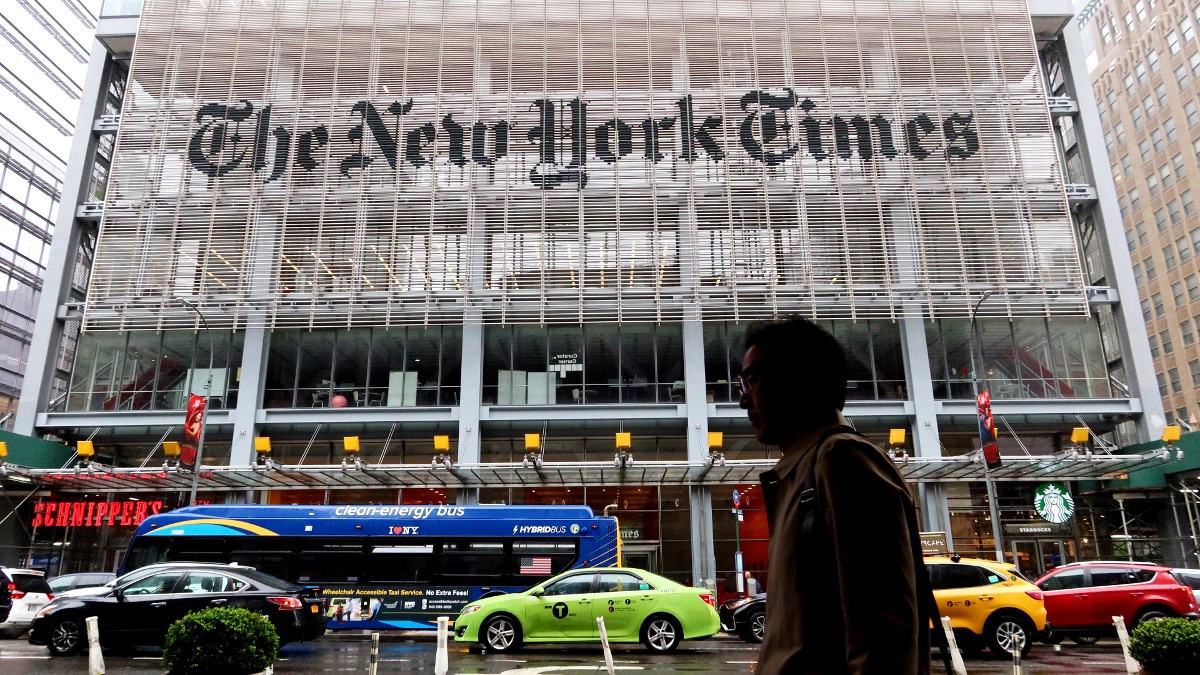The New York Times is leading the fight to protect journalists and their profession from artificial intelligence. It is the first American mass-media company to sue OpenAI and Microsoft for copyright infringement for using The New York Times‘ written content to train AI.
The lawsuit is similar to several that have been filed against OpenAI, Microsoft, Meta, and Bloomberg on behalf of authors for copyright infringement. Dozens of authors have filed lawsuits after discovering that several major AI developers were using a dataset called books3 to train their large language models. The dataset includes a staggering 191,000 copyrighted books, which these companies allegedly accessed using piracy websites and then fed into their AI models without author consent or compensation.
In addition to the issue of consent, since AI relies on all this copyrighted material to generate any output, authors argue that it constitutes copyright infringement. The theft was made even more insulting by the fact that many authors fear AI replacing them, so these companies were making them unwilling participants in the development of something that threatens their profession. The same thing is also happening to journalists, and now, The New York Times is taking legal action.
The New York Times sues OpenAI and Microsoft
The New York Times has sued both OpenAI and Microsoft for copyright infringement. The suit alleges that OpenAI and Microsoft utilized “millions of articles published by The Times” to train its AI systems without permission or compensation. As mentioned above, it is the first media company to take legal action against these AI developers. Meanwhile, the company has some severe demands for OpenAI and Microsoft. The suit suggests that both companies should be held accountable for “billions in statutory and actual damages” and calls for destroying all AI systems trained using copyrighted material.
The New York Times also highlighted that the suit isn’t just to get compensation but to protect the journalism profession as a whole. The suit states, “Defendants seek to free-ride on The Times’s massive investment in its journalism, using The Times’s content without payment to create products that substitute for The Times and steal audiences away from it.”
The suit continues: “If The Times and its peers cannot control the use of their content, their ability to monetize that content will be harmed. With less revenue, news organizations will have fewer journalists able to dedicate time and resources to important, in-depth stories, which creates a risk that those stories will go untold. Less journalism will be produced, and the cost to society will be enormous.”
The suit succinctly explains the threat to journalism that AI poses. While AI isn’t yet sophisticated enough to write full novels or biographies (at least not well), it is already producing news articles. Despite these articles often being filled with misinformation, many websites are still pushing out hundreds of AI-generated news articles daily.
With AI-generated articles flooding the internet, media outlets are losing views and revenue, which is only further contributing to the upheaval and mass layoffs those in the industry are already facing. Given how many of these companies are willing to lay off talented journalists for the sake of cost-cutting, it’s not surprising many fear the next move is for even reputable media outlets to begin churning out AI content simply because it’s cheaper than having human workers.
Most journalists today are grappling with low pay, layoffs, and increased harassment in the digital age. The last thing they need is for their hard work to be stolen and fed into the machines that are adding to their struggles. It’s comforting to see that journalists are joining authors in the fight against AI and are being backed by one of the most prominent newspapers in the nation. Other media companies may soon follow The New York Times‘ lead and further pressure these AI companies to implement safeguards to protect writers.
(featured image: Gary Hershorn / Getty)









Published: Dec 28, 2023 10:55 am